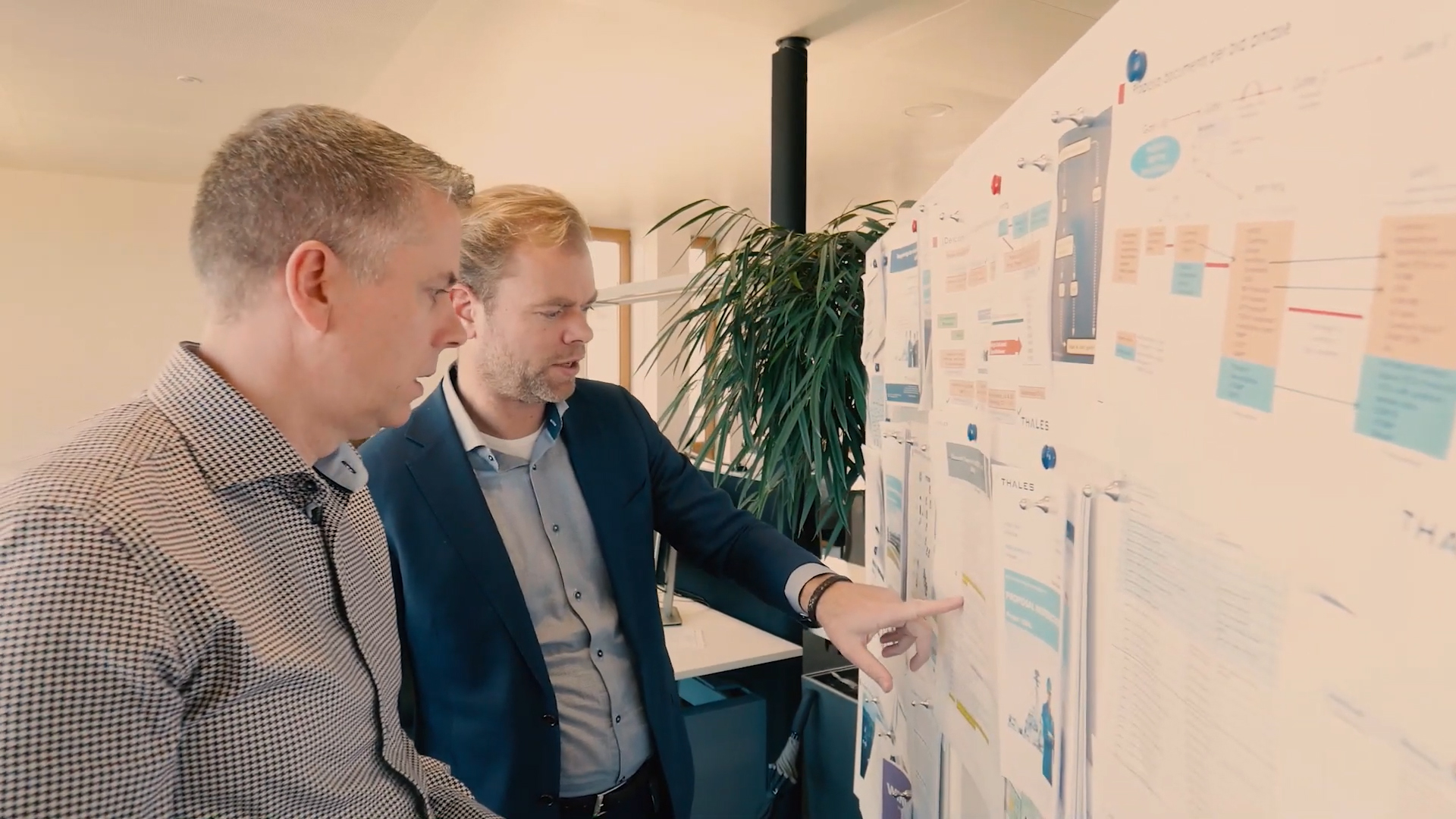Tracking the top talent that makes Thales tick
Why choose Thales over another high-tech company? Bringing in over one hundred engineers per year, Alexander Nijkamp and his team have the answer.
At the end of May, on the Hebrides test range in the Atlantic Ocean, the US Navy successfully intercepted a ballistic missile in space. It did so using data from Thales’ Smart-L MM radar. Installed on the Royal Netherlands Navy HNLMS De Zeven Provinciën, the Dutch system autonomously, without being cued, detected and tracked the missile for more than 5 minutes as it reached speeds of 3 km/second and an altitude of more than 300 km. The test was part of the At Sea Demo during the international exercise aptly called Formidable Shield.
Alexander Nijkamp gratefully uses this happening to promote Thales. “We get showered with compliments by the Americans, lauding us for our ‘formidable’ systems,” says the talent acquisition specialist. “Such moments always fill the entire organization with pride. It’s this pride in our company and our products that really characterizes the Thales culture for me. Whenever I’m showing people around our campus in Hengelo, colleagues are extremely eager to tell them about the exciting projects they’re working on.”
As a talent acquisition specialist, Nijkamp is responsible for ensuring that Thales has the right people, in the right place, at the right time to execute its strategy. “I’m recruiting for our three engineering departments in the Netherlands: Hengelo, Huizen and Delft, focussing on the software, systems and cybersecurity domains. My job’s a mix of employer branding and conveying the message our product development divisions want to send out.”
In my three years at the company, together with my colleagues, we’ve brought aboard more than four hundred engineers.
Infusing experience
Especially recently, Nijkamp has had his work cut out for him. “Over the last couple of years, we’ve grown substantially, mostly with starters and junior engineers. Lately, we’ve won a couple of very big projects, for instance for the German Navy and for the British Royal Navy. These require a lot of seniority as well, which is much harder to find.”
Seasoned engineers tend to stay put, counting their blessings. “They’ve usually been working in the same place for years, in a good job they’ve grown accustomed to. We can’t expect them to leave their comfort zone and switch to Thales in a heartbeat,” notes Nijkamp, describing his big challenge. “It calls for a different approach, really tailored to their needs rather than one-size-fits-all. We have to dive deeper and determine what makes them tick. And even then, we won’t be reeling them in by the dozens. It requires time and patience.”
Seniority not only plays a pivotal role in projects, big and small, but also in the organization as a whole. “When attracting junior engineers, or mid-level people for that matter, we want to make sure that they get the proper mentoring,” explains Nijkamp. “We simply need a whole lot of seniors, infusing their extensive experience into all the projects and the next generation.”
Opportunities aplenty

In wooing engineers to come to Hengelo, Huizen or Delft, Nijkamp emphasizes the wealth of opportunities Thales has to offer. “You can move both vertically and horizontally within the organization,” he illustrates. “You can start in mechanical engineering, RF engineering, software engineering or system engineering, in a myriad of projects. You can grow from a software engineer to a system engineer and eventually even assume a management position if so desired. Or you can choose to focus on a specific role, for example in project management.”
Thales being a global organization, there are also plenty of opportunities abroad. “You can continue your career at one of our many international offices – at the other side of the world or not so far away,” Nijkamp points out. “In one of our projects, for example, there’s a close collaboration and lot of interaction with the German Navy and an extensive exchange of staff, with people from Kiel and Wilhelmshafen coming to Hengelo and vice versa.”
For some, moving all the way to the Hengelo region used to be a deal-breaker. This is becoming less and less of a problem, notices Nijkamp. “Of course, it can still be tough to convince an engineer from Eindhoven to come and work in the east of the Netherlands. But showing the flexibility we have to offer, the possibilities to work from home, helps to overcome the hesitation.”
Open culture
Once people are on board, they tend to stick around. Many of Nijkamp’s colleagues have spent their entire professional career at Thales, some even with stints spanning several decades. “Our average staff turnover is incredibly low. People stay with us for a very long time.”
Nijkamp sees a number of reasons. “The myriad of possibilities to continue their career within Thales is one. The opportunity to work in big projects, with cutting-edge technology on high-tech systems, is another. There’s also the uniqueness of the defense domain. And the open culture. People have this misconception that because we’re a defence company, there must be a strict hierarchy, but quite the opposite is true. When they visit us for the first time, they’re often surprised by the openness, not only of our campus but also of our organization. Everyone is approachable, all the way to the top, and everything is open for discussion.”
For old and new, there’s more than enough work to go around at Thales. “Thanks to several recent projects, our pipeline is well filled,” concludes Nijkamp, “for many years to come.”
Want to learn more about what it feels like to work at Thales? Looking for a job at a true high-tech company in the Netherlands? Click here for our current job openings!


